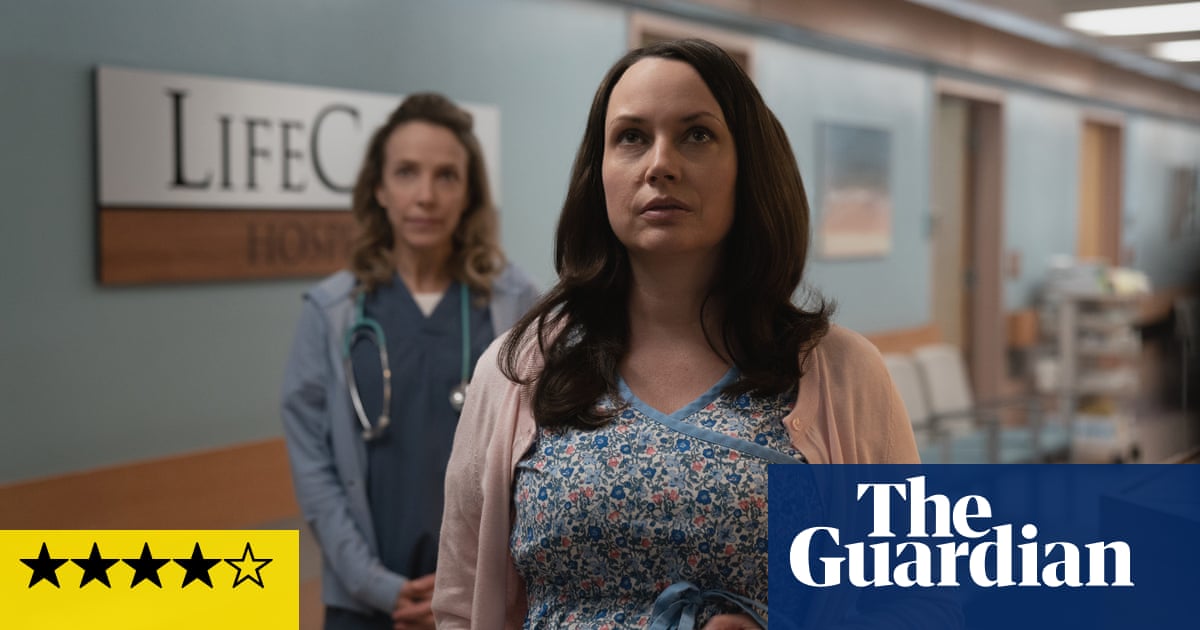
Five Days at Memorial review – this extraordinary post-Katrina drama is utterly brutal and utterly compelling
Ryan Murphy tried for years to make a series of his American Crime Story anthology series out of Sheri Fink’s bestselling and meticulous book, Five Days at Memorial, about how the terrible aftermath of Hurricane Katrina played out in one New Orleans medical centre. You can see why it defeated him. The story of how a manmade disaster overlaid the natural one, compounding the suffering of innumerable people – and almost certainly leading to the deaths of at least 45 of them – is simply too bleak for his sensibility.
John Ridley (the writer of 12 Years a Slave) and Lost showrunner Carlton Cuse took it on instead, for Apple TV+, and have ended up creating something extraordinary. Set almost wholly within the increasingly fetid and hopeless confines of Memorial hospital – with each of the first five episodes devoted to a single one of the five fateful days in 2005 that unfolded after Hurricane Katrina made landfall – it is utterly brutal and utterly compelling. This is at a slight cost to character delineation and development. Every performance (especially Vera Farmiga as Dr Anna Pou, Julie Ann Emery as nurse Diane Robichaux and Raven Dauda as the daughter eventually forced to abandon her dying mother) is quietly brilliant, but their situations are so unrelentingly terrible that they inevitably become slightly emblematic rather than inpidualised figures.
In episode one, we watch local residents join patients and staff in the hospital to shelter there as they have always done. It is the natural, sensible and traditional place to go. Katrina blows out windows and puts the fear of God in everyone, but passes with the people unscathed. There is a brief moment of relief before the levees break.
The power goes out, the aircon stops. The hospital’s nursing administrator and incident commander Susan Mulderick (Cherry Jones) discovers there is no protocol for evacuating the hospital in the event of a flood. A memo had been sent alerting the powers that be to the need for one after a previous near-miss but nothing had been done. It is the first tiny droplet of what will become a deluge of corporate, state and government failures that engulfs them as unstoppably and devastatingly as the floodwaters.
As food, fresh water, medicines and supplies dwindle, the staff do their best to save their patients. The lifts don’t work, so they carry each patient (and whatever equipment they are dependent on) up endless flights of stairs to the barely-stable helipad on which occasional rescue craft can be persuaded to land.
When some form of authority eventually arrives, they are given five hours to get everyone else out instead of the 24 needed. Among some of the nurses and doctors, especially the devout Christian Anna Pou and old-school patriarch Ewing Cook – an understanding is formed that no one who cannot be moved should have to endure a painful, lonely death after staff have gone. “No living patient left behind,” is how Mulderick puts it.
The last few episodes concentrate on the investigation into the possible euthanising of 45 patients that occurred. They ask what true compassion looks like – and what a doctor’s duty of care encompasses in desperate times. Still, it is the obduracy and failure of George W Bush, the Federal Emergency Management Agency and everyone else who had the power to intervene at the scale and with the strength required in the wake of the hurricane that linger most in the mind. It is portrayed as the most incredible dereliction of duty – as it surely was. They should be drowning in shame still.










































































